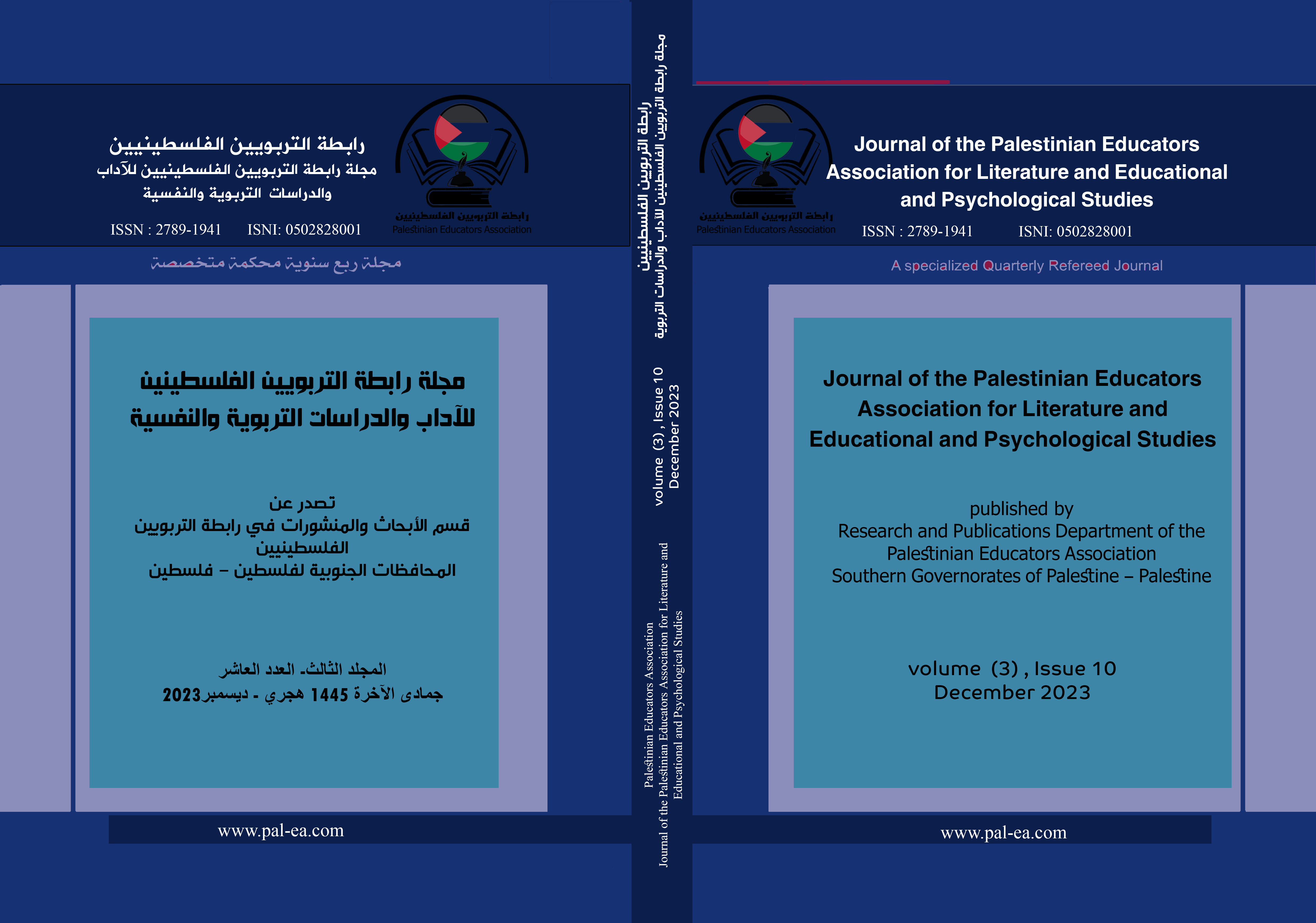A proposal for the inclusion of sustainable development dimensions in the content of the high school Arabic language book)
Keywords:
Conceptualization, dimensions, development, sustainable, ArabicAbstract
The study aimed to identify the extent to which the necessary dimensions of sustainable development are available in the content of the Arabic language book for the secondary stage, and to present a proposed scenario for including them. The study used the descriptive analytical approach with the Arabic language content analysis tool in light of the dimensions of sustainable development. The study concluded that the dimensions of sustainable development in the content of the book The Arabic language for the secondary stage reached (154) repetitions, the economic dimension got a percentage of (56.9%), the social dimension got a percentage of (61.7%), the environmental dimension got a percentage of (60.5%), and the technological dimension got a percentage of (77.4%), then The study presented a proposed vision for including the necessary dimensions of sustainable development in the content of the Arabic language textbook for the secondary stage. In light of this, the study recommended including the dimensions of sustainable development in the content of the Arabic language textbook for the secondary stage, and linking them to the lives of the learners, their daily problems, and the requirements of the vision of the Ministry of Education.
Downloads
Downloads
Published
Issue
Section
License
Copyright (c) 2024 فداء ماهر مرار (مؤلف)

This work is licensed under a Creative Commons Attribution-NonCommercial-ShareAlike 4.0 International License.
The Journal of the Palestinian Educators Association for Literature, Educational and Psychological Studies
E-issn: 2789-1941
Authors retain Copyright
The Journal of the Palestinian Educators Association for Literature, Educational and Psychological Studies allows Authors retain Copyright and grant the journal right of first publication with the work simultaneously licensed under a Creative Commons Attribution (CC-BY) 4.0 License that allows others to share the work with an acknowledgment of the work’s authorship and initial publication in this journal.
Provided they are the owners of the Copyright to their work, authors are able to enter into separate, additional contractual arrangements for the non-exclusive distribution of the journal’s published version of the work (e.g., post it to an institutional repository, in a journal or publish it in a book), with an acknowledgment of its initial publication in this journal.
Authors are permitted and encouraged to post their work online (e.g., in institutional repositories, disciplinary repositories, or on their website) prior to
and during the submission process.










